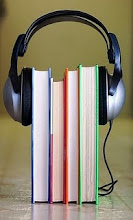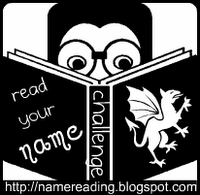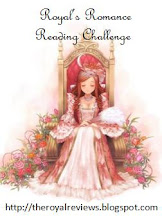- Warning Spoiler alert: Some of these questions contain spoilers so if you haven't finished the book do not read any further ......
- If you have read The Da Vinci Code or Angels & Demons, how do you think The Lost Symbol compared to Brown's other books?
- Katherine Solomon worked in a field called Noetic Science. Do you think it is possible that the human brain can transform matter? Would you consider Noetics a real science?
3. How would it change the world if there were more tangible evidence of the spiritual world? How is Katherine Solomon's perception of science different from Robert Langdon's?
4. Do you think that a secret knowledge could exist, such as the Ancient Mysteries?
5. Are you surprised by how many of America's founders were Freemasons? What do you think of all the Masonic imagery in American art and architecture?
4. Do you think that a secret knowledge could exist, such as the Ancient Mysteries?
5. Are you surprised by how many of America's founders were Freemasons? What do you think of all the Masonic imagery in American art and architecture?
6. How familiar were you with Freemasonry before reading the novel? How did your impressions of the organization shift throughout the book, from the chilling prologue to Peter Solomon’s philosophical comments near the end?
7. Do you think it would actually cause a "national security crisis" if somebody had a video of high level government officials participating in the rituals described in The Lost Symbol? Why or why not?
7. Do you think it would actually cause a "national security crisis" if somebody had a video of high level government officials participating in the rituals described in The Lost Symbol? Why or why not?
8. Discuss the novel's grand theme of architecture. How did The Lost Symbol change the way you think about the way buildings are designed and the intention of their architects (creators)? What most surprised you about the tributes to the past—and visions of the future—that are captured in the landmarks of Washington, D.C.?
9. Were you surprised to find out that Mal'akh was actually Zachary Solomon?
9. Were you surprised to find out that Mal'akh was actually Zachary Solomon?
10. Mal'akh considers the polarity of angels and demons noting that “the guardian angel who conquered your enemy in battle was perceived by your enemy as a demon destroyer.” What does this indicate about Mal’akh’s perception of himself in the world? How can his evil nature be explained? Why is he only able to consider his own suffering, while relishing the suffering of others?
11. At the heart of the novel is a quest to unlock wisdom, and the need to keep it "locked" because it can be used for destructive purposes. Do you believe that freedom of knowledge (Wikipedia, a world wide web) is a blessing or a curse?
12. The novel's epigraph, from Manly Hall’s The Secret Teachings of All Ages, encourages readers to become aware of the meaning of the world. What mysteries about the world, and life, do you think are the most important ones to explore?
13. The final chapter raises intriguing questions about the possibility of a multi-faceted God and the potential to find God in all of humanity. Can there be a universal definition of enlightenment?
14. While interpreting the Masonic Pyramid's final inscription, Robert Langdon tries to bring order out of chaos by interpreting each symbol as a metaphor. Peter Solomon instructs him to be literal and accept the inscription as a true map. What does this exchange say about the best way to interpret all sacred messages?
15. What truths do Katherine Solomon and Robert Langdon experience in the epilogue, at sunrise, atop America's ultimate symbol? From your perspective, what does the Capitol symbolize?
16. What does The Lost Symbol indicate about the power of the Word—both ancient texts and bestselling twenty-first-century novels?
17. What common thread runs through this and each of Dan Brown's previous works? What makes The Lost Symbol unique? How has Robert Langdon's perspective changed from Angels & Demons and The Da Vinci Code?
18. Rate The Lost Symbol on a scale of 1 to 5.
11. At the heart of the novel is a quest to unlock wisdom, and the need to keep it "locked" because it can be used for destructive purposes. Do you believe that freedom of knowledge (Wikipedia, a world wide web) is a blessing or a curse?
12. The novel's epigraph, from Manly Hall’s The Secret Teachings of All Ages, encourages readers to become aware of the meaning of the world. What mysteries about the world, and life, do you think are the most important ones to explore?
13. The final chapter raises intriguing questions about the possibility of a multi-faceted God and the potential to find God in all of humanity. Can there be a universal definition of enlightenment?
14. While interpreting the Masonic Pyramid's final inscription, Robert Langdon tries to bring order out of chaos by interpreting each symbol as a metaphor. Peter Solomon instructs him to be literal and accept the inscription as a true map. What does this exchange say about the best way to interpret all sacred messages?
15. What truths do Katherine Solomon and Robert Langdon experience in the epilogue, at sunrise, atop America's ultimate symbol? From your perspective, what does the Capitol symbolize?
16. What does The Lost Symbol indicate about the power of the Word—both ancient texts and bestselling twenty-first-century novels?
17. What common thread runs through this and each of Dan Brown's previous works? What makes The Lost Symbol unique? How has Robert Langdon's perspective changed from Angels & Demons and The Da Vinci Code?
18. Rate The Lost Symbol on a scale of 1 to 5.
Many thanks to Dan Browns site for some of these discussion questions :)


















1 comment:
Looking forward to discussing this one girls ..... :)
Post a Comment